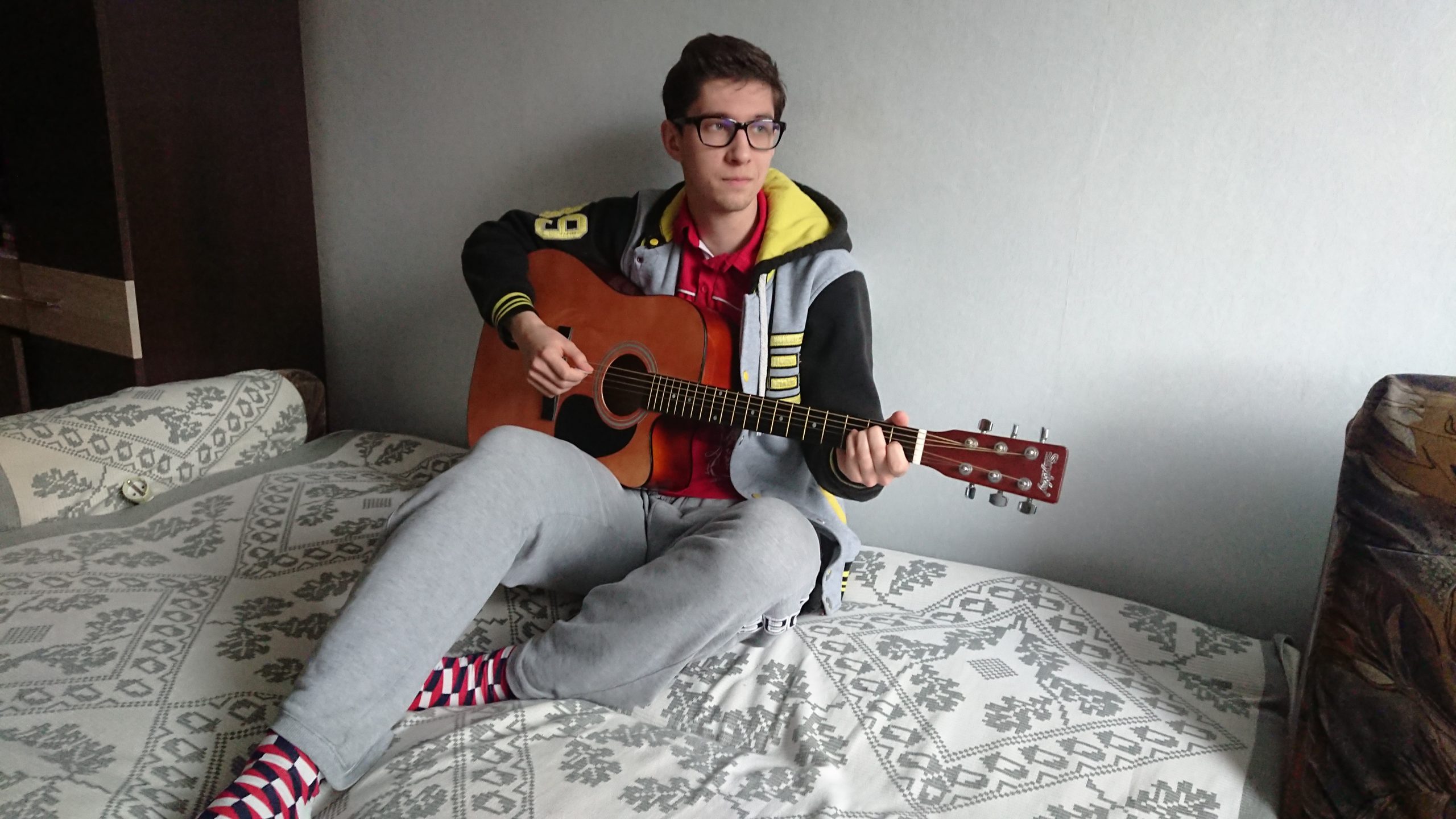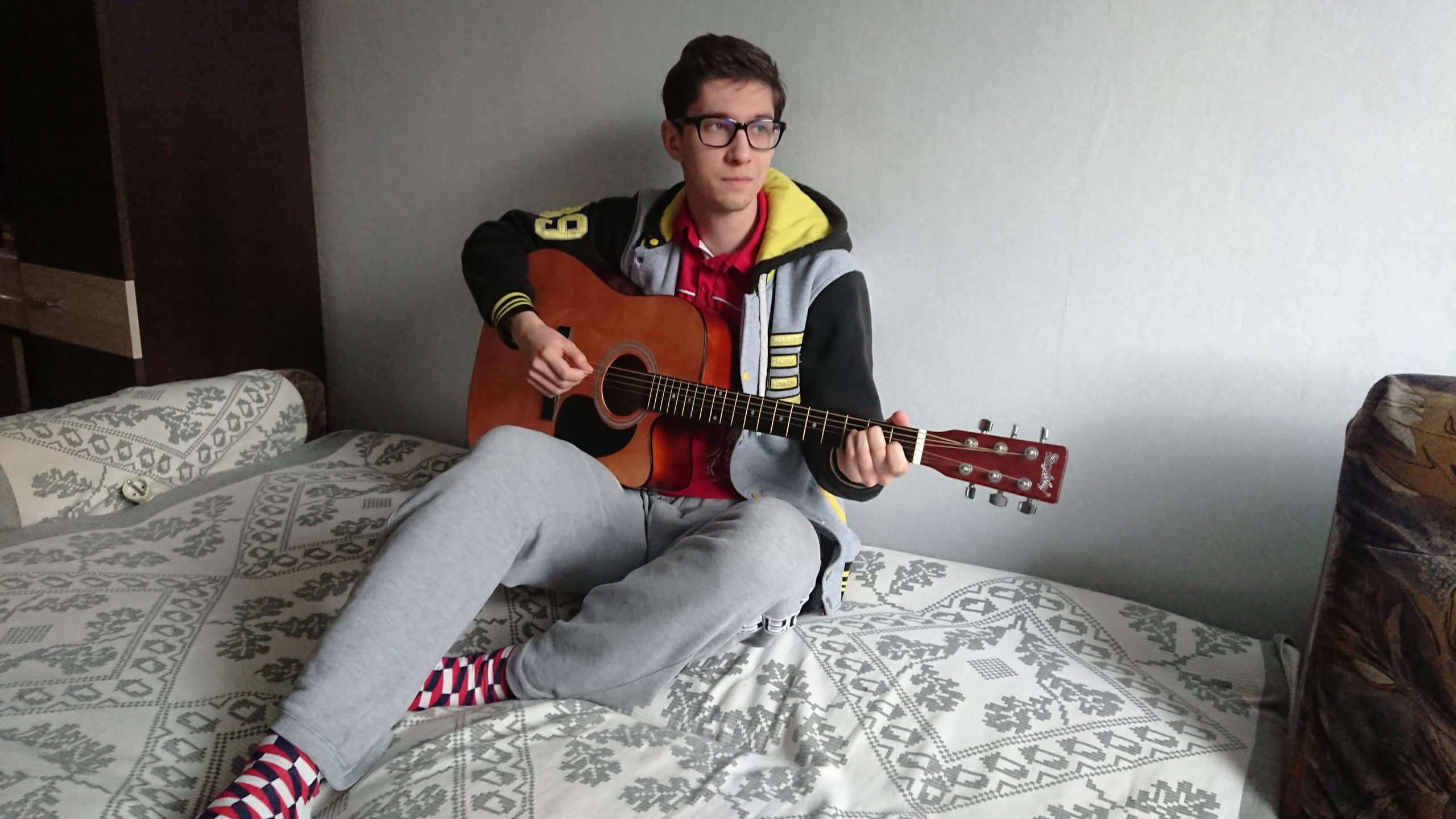Learning lessons for life through the Award
Gold Award holder Gleb, from Lithuania, tells us why the Award is more than just an extra-curricular activity; it’s a skill for life.
Tell us about your Award journey – why did you decide to start your Award?
In my high-school years I wanted to turn [over] a new leaf and improve myself. My strategy was – try everything you can and see what sticks. I joined a chorus, then joined a band, started dancing and was invited to DoE [the Award]. Though DoE was the most challenging of all, the accountability to others made it outlast every mentioned activity.
What do you like about the Award?
In all seriousness, I think the programme makes it possible to challenge oneself personally. To choose and focus on things that the participant finds meaningful to him or herself.
Of course, I only understand that in hindsight, because in the first [level], Bronze, the challenges were unexpected and my motivation was unclear. That said, perseverance is one of many things that I learned in DoE.
What do you find challenging about the Award?
Teamwork and consistency.
Adventurous Journeys are difficult in and unto themselves, but the planning part is always more frustrating. I think that the planning phase is the time were the team faces their first communication challenges. And that often causes first conflicts. Nonetheless, it’s important to get everybody’s differences aside before the actual hike.
On the personal side, it’s hard to do things consistently. The first few times of any activity are motivated by the novelty, later comes monotony and boredom. And after that comes the real challenge – the progress slows down. At that point it seems there is no motivation to continue. But that’s where the programme works for me. I feel accountable to my mentor and the programme. So, I persist.
Currently I’m learning guitar (quite convenient in these circumstances), and I’m approaching my 100th day of playing guitar in a row. I don’t see much progress now, but my mentor is checking up on me, and I don’t want to let him down. So, I persist, no matter how slow the progress feels.

What sort of challenges are you facing in your day-to-day life, as a result of COVID-19? How has this impacted you?
Lack of movement and contact with people really takes a toll on me. I think these are widespread problems. My workouts became stale and less intense, because I don’t have the equipment that my gym provided. I can’t properly volunteer in a youth centre because of the quarantine. Not to mention all the cancellation and postponing concerning the hike abroad for [the] Gold Adventurous Journey.
Though all of this is inconvenient, I understand that it is necessary for the safety of us and others.
Is the Award helping you to deal with any of these challenges? If so, how?
Well, my personal challenge of learning how to play the guitar keeps me doing something productive.
Have you had to adapt your Award activities as a result of COVID-19? If so, how? Has anything remained the same?
Of course. As I mentioned before, the programme taught me perseverance.
I was training for my Physical Recreation goal mostly in the gym for my Gold Award. But because of the quarantine, the gyms are closed and I don’t have any equipment required for my exercise plan. So, I adapted and now I use bodyweight exercises. It’s definitely not the same, but it’s better than nothing.
As for my Voluntary Service, I did some work for a special, nationwide initiative. It’s called “Laikykites, Medikai!”, roughly translated to “Hold on tight, medics!”. The initiative is giving immediate help for medics in need of essential equipment, in the period of time when the government moves slowly. It’s funded by donations from people and companies. They asked for volunteers, so I signed up. Though I helped just for a day (because now the initiative handles the workload by itself), I found solace in the fact that I’m helping directly.
Have you found any interesting solutions to help you continue with your Award during COVID-19?
Currently I’m considering hosting social games through the internet for the people of my youth centre.
Do you think being involved with the Award helps you and your community at this time? If so, how?
I think that DoE [the Award] participants are now using the skills learned in the programme (like perseverance or patience) to help themselves and others in this difficult time.
Do you have any other comments or ideas you would like to share?
I think the best idea right now is to keep calm, stay at home, don’t take unnecessary risks and don’t cause any unnecessary problems. And if possible, supporting the real heroes of this pandemic – medics.




